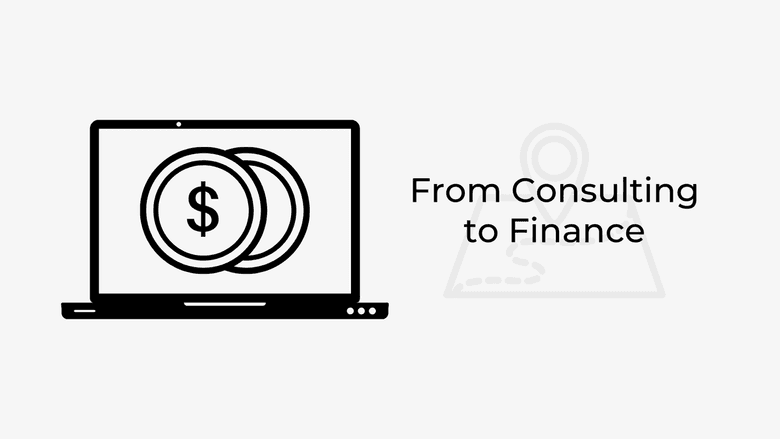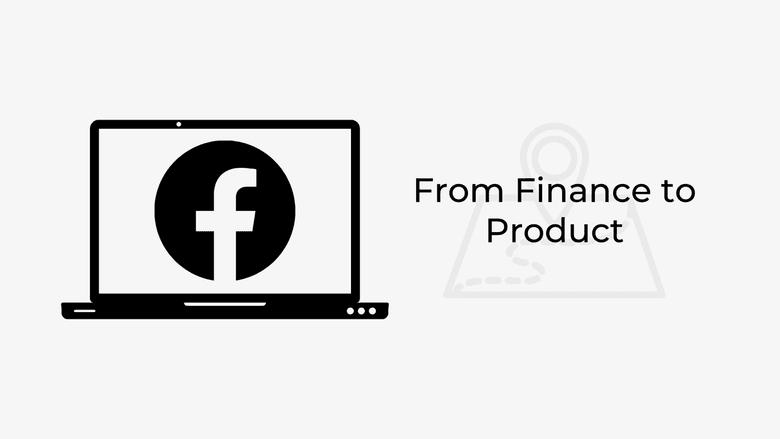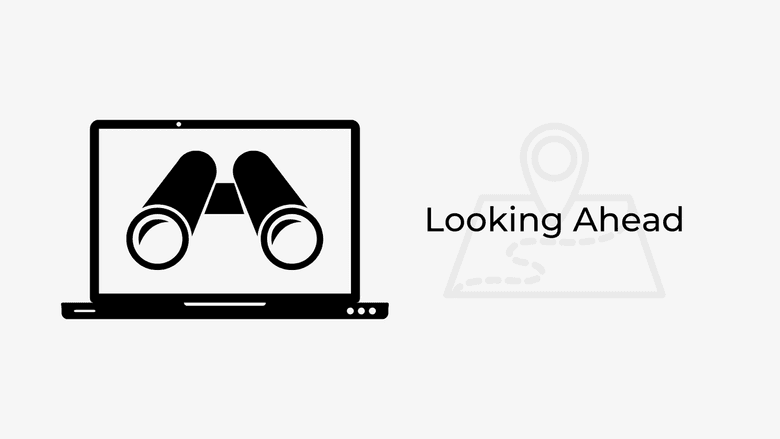Many will tell you there’s no clear path to becoming a product manager, and Facebook PM Faustina Fan can attest to that. After starting her career as an accountant, her interests switched to consulting, then finance, before she settled into her current role, where she builds tools for a sales team at Facebook. She loves helping others in their careers (even writing a blog post about her problem solving strategy) and was excited to share her unique story and advice.

Why did you choose to pursue accounting?
I was business undeclared when I first started as a freshman at Santa Clara University. I love to understand how companies make money, which is why I got started in business in the first place. I took a few general classes, and accounting was really easy for me to grasp, and I figured that if you want to do something as a career, you might as well do something that you’re really good at.
The school has very structured career fairs, so I actually got a job offer from multiple Big Four companies at the beginning of junior year. So that’s what really motivated me as well. I was getting recognized by my peers, I was getting recognized by my professors, I was doing really well in accounting, and on top of that, I already got job offers before everyone else. So all of this compounded into this realization that maybe this is my career direction, which is also very dangerous because you’re going in that direction because of this external environment encouraging you to do that. But that might not be something that you’re really passionate about.
How did you start transitioning into consulting work?
I started at PwC and then did two and a half years of assurance practice, which is like auditing companies. But besides what I signed up to do, I also got a bunch of experience on small consulting projects, where I look at companies, like how they make money, what does their backlog look like, how can we build processes and systems that really streamline how the company operates, etc.

I was still in the same role, but I realized that if you really want to do something, you can form your own scope. You can say, I really want to do consulting-type projects. I really want to know what management consulting is like. I really want to go to a small startup client and help them figure out how to track their revenue. These are some of the things that really get me excited, that zero to one. And once you have enough leverage-- you have to first build your reputation, have the networks, show that you’re really good at doing your current job so that all of this builds momentum and when you ask for something that’s outside of your job scope, people are like, “Yes, I would love your help on it.”
👉 Interested in working at PwC? Learn more here
What advice would you give to someone who wanted to make a career pivot?
There’s no clear path when you’re trying to make pivots, but you don’t have to change a company or apply for a job at a different company in order to pivot. Sometimes it’s easier to pivot based on your existing networks.
If I can attribute one thing to my success when I first started, it’s curiosity. I never just did things because someone told me to do it, I actually did it to understand the why. And because of my curiosity, I always asked for work that was outside of my scope. As an associate, you will get assigned very structured work that’s quite limited, but because I was always doing my job, and doing it very good and fast, people started to assign me things that were more challenging, or things that didn’t really fall into my role and responsibilities of assurance associate. I started to get consulting projects, I started to be able to pick the projects that I want to work on, and that gave me a lot of leverage in terms of growth in the early career.

How did you move into finance from consulting?
I started to realize that I have an urge within me to do something with a mission. If it’s consulting-based, we’re on a contract, you hire me to do what I’m asked to do, and then you move onto the next client. I want to have this strong sense of ownership on things I do, and I want to be able to contribute to a company’s overall mission or goal. In consulting, that’s really hard to do. A lot of times, even if a company goes bankrupt, it really doesn’t impact you one way or another.

At that point, I started to look for jobs, and Facebook was one of the companies that I applied to. They just started building the Oculus ARVR division back in 2018, so I went through the interview loops and then became the first finance analyst. And what really attracted me to this role is that I used to do more of looking at companies’ existing evidence and making assessments or analyses based on that. But finance analysts in the corporate world are actually on the opposite side, where they do focus a lot more on forecasts. Like, how can I forecast the revenue? How can I predict where I’m going to land in Q4 or next year? What is the growth like? How can I save costs? So that’s what really attracted me.
What was the finance position like?
I started on the ARVR Facebook division, working on the Oculus headsets, and because the team was so small back then-- it was like two to three people on the entire team-- I got a lot of exposure again to do things that were outside of my scope. Typically in a company, finance maybe sets up pricing structures and does forecast budgets, etc. But because the team was so small and everybody needed help, I was able to see how go-to-market works. I was able to participate in the product development cycle, to represent finance in terms of which country do we think we have the best chance of succeeding. Where is our revenue concentrated in terms of geography? How do we tie that back to a go-to market plan? I feel like if I were to be in a very big organization where it was very structured, or if I didn’t proactively look out for these opportunities, I wouldn’t be able to get as much access to them.
👉 Which questions does Facebook ask in finance interviews? Find out here

What brought you into product?
After a year and a half, that kind of got old. And then I started to think of the stuff that I saw when I was doing my financial analysis. There’s problems that I saw that could be improved, but if you improve on your market strategies, your sales strategies, running additional promotions to boost sales, it’s just scratching the surface. The bottom line is really that something fundamentally needed to be improved, or something was wrong in the product itself. And that draws me closer and closer to products. I really want to be helpful, and I really want to get things right, and I don’t like just fixing something at the top without fixing the root. And a lot of the root cause of the problems I was seeing from a profitability standpoint, from a revenue standpoint, it all ties back to the product itself.
How did you actually make the transition?
Sales was one of the cross-functional partners I supported, and when I supported them, it was like looking out for them. Like, what are the best ways for us to structure a deal so that we get more opportunities? Basically an advisor type of role to sales. So when I said that I really want to build tools for sales, it became a really easy transition because I already have the credibility, I have the reputation. People know I will do a good job. People know that I actually watch out for them and I care for them. And that’s why I think they gave me the job because they basically see me as someone who’d really want to help them, versus this finance person who wants to put some structures in place.

They basically had zero toolings in place because the team was so small. So I took on the role and started to build products that help the sales team to increase their productivity. So think of it as, when it’s a small startup, everything is kind of done in emails. But now that you’re a global organization with thousands of people and tremendous amounts of growth over a few years, you start to need infrastructures and tools in place for people to be able to communicate and plan things effectively. I start to look at, what are the sales account managers doing? What are their pain points? What do they need from a productivity standpoint? What’s useful to them? How do we make it simple, useful, innovative so they don’t look at it as another enterprise application, they actually want to use it? And that was really the beginning of my product management journey.

What’s your next move?
I want to take my career further to build consumer tools, consumer products. When I see consumer products, there’s usually a lot more scale and complexity compared to internal. Internal tools are kind of like B2B businesses, where like, your customer is literally sitting a hallway away from you, and you kind of build to their needs. It’s a great way to get into product management because they teach you how you solve user problems. But as you expand, you either want to go to a company that actually focuses on building business applications as part of their business, or you want to go into building consumer products that face directly to a consumer. Currently, because the role is within enterprise engineering, and then internal tools, my audience is relatively small.
What’s your best career advice?
Don’t be afraid of trying something new, and don’t give up, even if you’ve failed multiple times before. When you go into a new field, or when you want to go into a new field, it’s likely that you’re going to get 99% rejections. But if that’s something you really want to try and you think is worthwhile, you should always try that, even if you have a 1% chance. Because all you need is that 1% chance.
*Interview has been edited for length and clarity
The information provided herein is for general informational purposes only and is not intended to provide tax, legal, or investment advice and should not be construed as an offer to sell, a solicitation of an offer to buy, or a recommendation of any security by Candor, its employees and affiliates, or any third-party. Any expressions of opinion or assumptions are for illustrative purposes only and are subject to change without notice. Past performance is not a guarantee of future results and the opinions presented herein should not be viewed as an indicator of future performance. Investing in securities involves risk. Loss of principal is possible.
Third-party data has been obtained from sources we believe to be reliable; however, its accuracy, completeness, or reliability cannot be guaranteed. Candor does not receive compensation to promote or discuss any particular Company; however, Candor, its employees and affiliates, and/or its clients may hold positions in securities of the Companies discussed.
